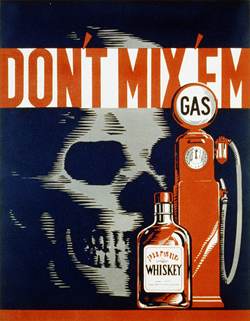
A DWI taskforce in Montgomery County, Texas called the “Bars and Cars” task force has arrested a bartender for over-serving a patron. The DWI task force does not simply focus on drivers who are already drunk and on the road, but on all aspects that lead to drunk driving, including the places where many DWI stories begin–at bars.
In The Woodlands, Texas, undercover officers from the Conroe Police Department visited Baker Street Pub and began observing bartender Chelsea Wilburn and an intoxicated customer. Warren Diepraam, from the Montgomery County DA’s Office, said, “This person was obviously intoxicated, shouting racial epithets. He had slurred speech, very droopy eyes, fumbling around.”
Willburn is being charged with the sale of alcohol to an intoxicated person which is a Class A misdemeanor. If convicted, Willburn may face up to a year in jail and a fine up to $4,000.
The Baker Street Pub has also been cited for serving alcohol to an intoxicated person, according to an agent with the Texas Alcoholic Beverage Commission. The report is in review to determine potential administrative penalties.
The “Bars and Cars” DWI task force is working with bars and educating bartenders and servers about the laws regarding serving already intoxicated patrons. This effort came after a string of fatal drunk driving accidents in the Montgomery County area over the summer.


 There are over 70 different types of licenses for selling alcohol in Kansas, and seven classifications dictating alcohol sales in a county, ranging from dry, wet, moist, limited, golf course, winery, and qualified historic site (QHS). In Kansas, voters are not allowed to buy alcoholic beverages during primary or general elections but can during special elections. Grocery stores must have a separate entrance and shop in order to sell wine or liquor, and consumers can run a tab on beer at a bar but cannot do the same for distilled spirits or wine.
There are over 70 different types of licenses for selling alcohol in Kansas, and seven classifications dictating alcohol sales in a county, ranging from dry, wet, moist, limited, golf course, winery, and qualified historic site (QHS). In Kansas, voters are not allowed to buy alcoholic beverages during primary or general elections but can during special elections. Grocery stores must have a separate entrance and shop in order to sell wine or liquor, and consumers can run a tab on beer at a bar but cannot do the same for distilled spirits or wine.